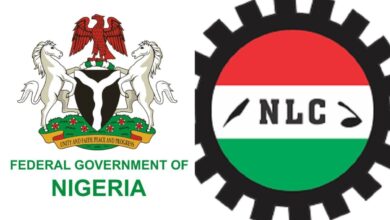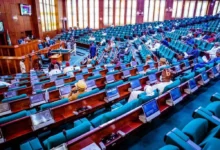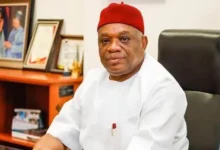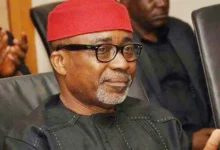
The Nigeria Labour Congress (NLC) has declared a two-day strike warning commencing on Tuesday, September 5 in protest of the Federal Government’s failure to address the problems caused by the removal of fuel subsidies.
Joe Ajaero, president of the NLC, made the announcement on Friday during a press conference at the Labour House in Abuja, speaking about resolutions from the NLC National Executive Committee (NEC) meeting the day before.
The labour union accuses the federal government of abandoning negotiations and failing to implement resolutions from previous meetings.
On August 2, organised labour protested what it called the anti-people policies of President Bola Tinubu’s administration.
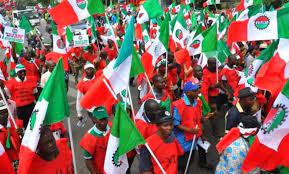
NLC
The Nigeria Labour Congress (NLC), Trade Union Congress (TUC), and their affiliated unions demonstrated in Lagos, Abia, Plateau, Kaduna, Kano, Rivers, Zamfara, Katsina, Cross River, Ebonyi, Enugu, Kwara, Ogun, Imo, Ondo, and Edo.
The protest followed a seven-day ultimatum issued to the Federal Government, which demanded “the immediate reversal of all anti-poor policies of the federal government, including the recent increase in PMS (Premium Motor Spirit) price, increase in public school fees, and the release of the eight months withheld salary of university lecturers and workers.”
The union also demanded an increase in the minimum wage from N30,000 to N200,000, claiming that since the President’s “subsidy is gone” inaugural address on May 29, 2023, Nigerians have lost their peace of mind.
Several meetings between the Presidency and the unions to discuss aid for Nigerians experiencing hardship as a result of the withdrawal of the petrol subsidy were unsuccessful.
Joe Ajaero, president of the Nigeria Labour Congress, argued last month that the N5 billion approved for each state and the FCT to cushion the impact of the removal of petroleum subsidies was insufficient to impact the people.
Ajaero stated on Channels Television’s Politics Today on August 18 that the N5 billion would not amount to N1,500 per person if calculated.
It is unclear, according to him, whether the money is a loan or a palliative for the states or Nigerians.
“The first increase in the price of petroleum products at the pump and the most recent one pushed a large number of people from the edge of poverty into extreme poverty,” he said.
“Now, if you do the maths, you’ll realise that this will not amount to N1,500 per individual, and you may wonder: is this the impact? Is that truly what we wish to accomplish? Assume that it is a loan. What is actually going to occur? Does garbage in equal rubbish out?
“If it is N5 billion, I believe organised labour would want someone to do the calculation and tell us how it will affect Nigerians given the current situation.” If it is a loan, it is unacceptable.”




